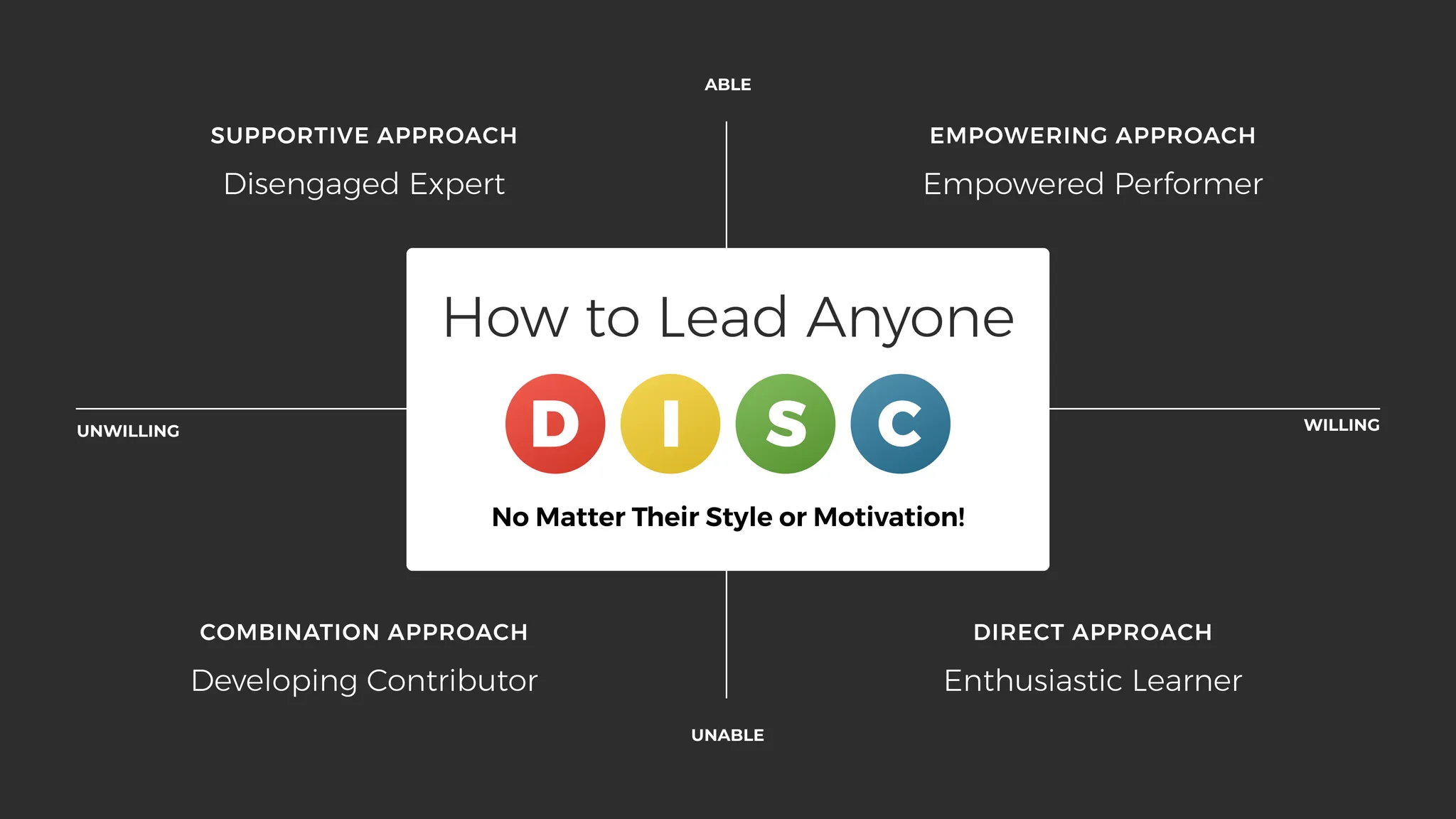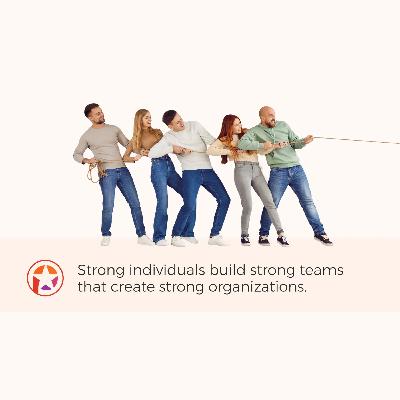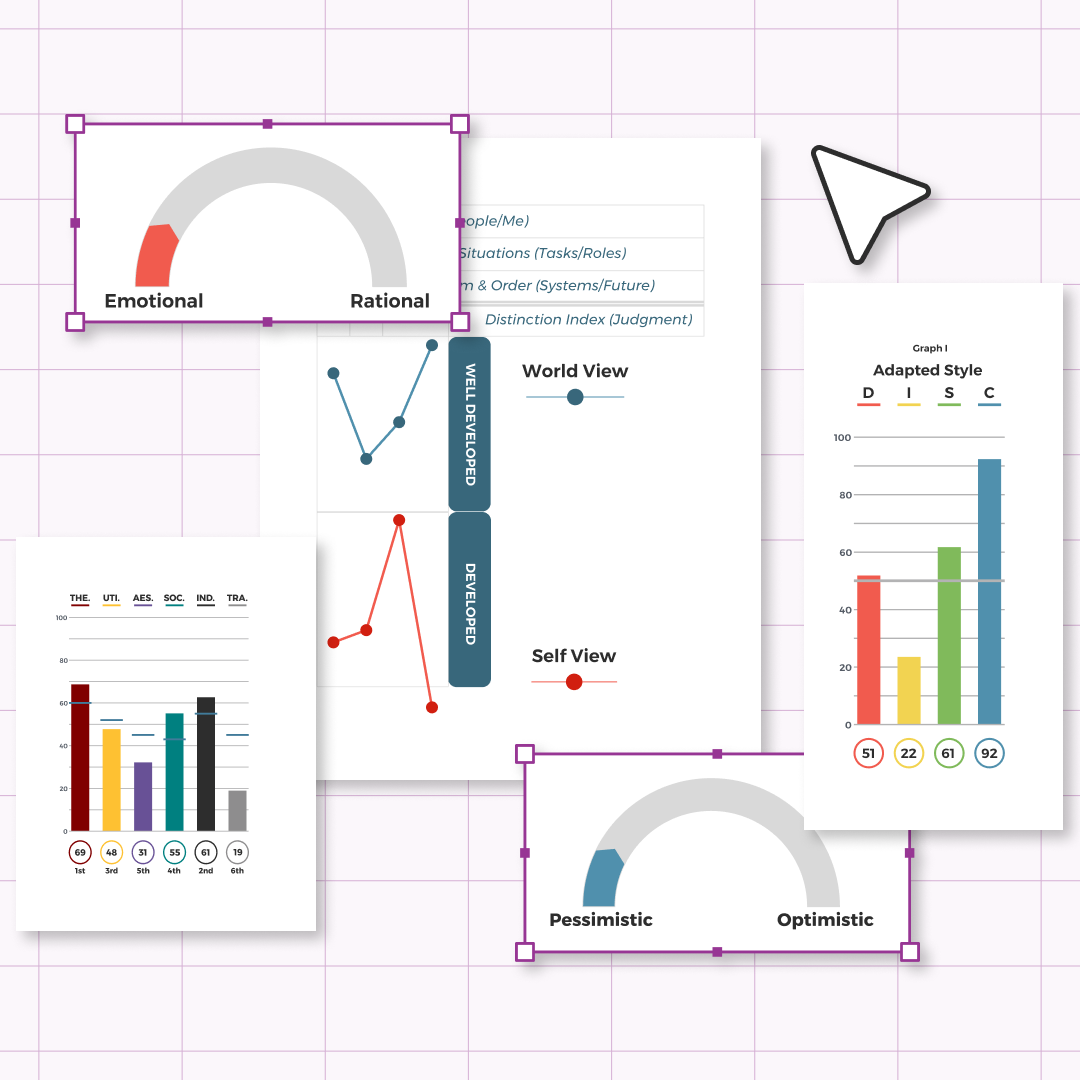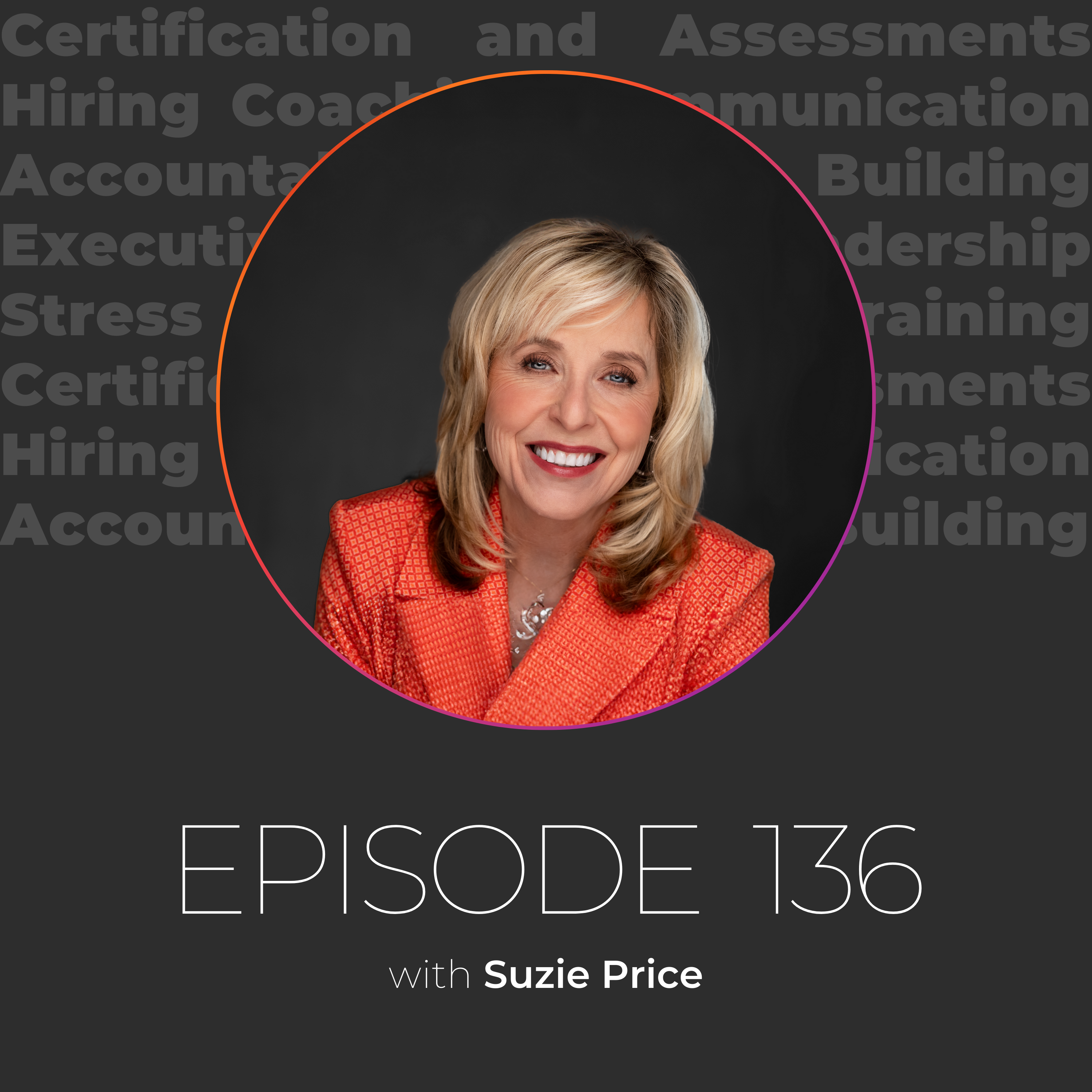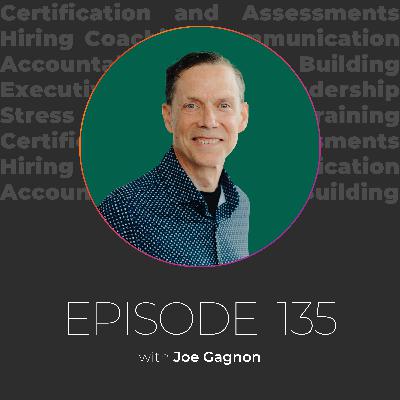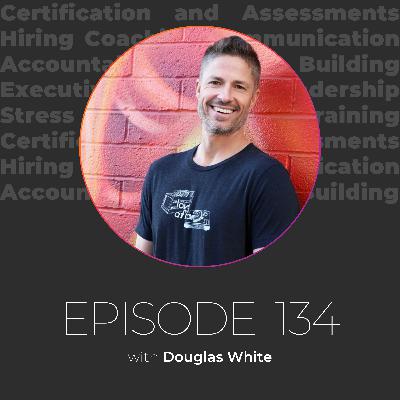Mini-Episode #6: The 10 Most Common DISC Assessment Mistakes, Myths, and Solutions
Description
Episode Transcript:
[00:00:00 ] SUZIE: welcome to this wake up ego workforce podcast many episode where we share in 10 minutes or less our monthly article from LinkedIn in a new audio format courtesy of our AI co host as they walk through the article and share additional insights exclusively for you I am Susie Price I'm your podcast host and the founder of Priceless Professional Development and whether you're listening to one of our long form episodes or something like this mini episode our focus is always to provide everything to you related to helping employees in your organization build a high commitment low drama wake up eager workforce we're focused on creating great hiring creating great teams helping leaders and individuals wake up eager you can find all of our episodes long form and short form at Wake up eco workforce.com and you can subscribe anywhere that you get your podcasts so let me know if you have any questions if you are enjoying these mini episodes or any of our other episodes or if I can help you in any way you can find me at Susie at priceless professional. com Susie Price on LinkedIn and of course our contact information if you go to wake up eager workforce.com thanks for tuning in appreciate you very much and go out and have a wake up eager kind of day take care
[00:01:23 ] AI HOST 1: you're here because you wanna really get under the hood right yeah gain that deep knowledge without getting uh totally bogged down exactly you sent over some great material on the DISA assessment and we get it you want to cut through the noise and figure out what it really does and you know where it might fall short uh huh so that's our mission for this deep dive we're gonna unpack the common myths the misunderstandings around DIS check some clarity yeah exactly clarity so you can see its true value and also the potential pitfalls it kind of reminds me of that Abraham Maslow quote oh the hammer one yeah yeah I suppose it is tempting if the only tool you have is a hammer to treat everything as if it were a nail
[00:02:04 ] AI HOST 2: it fits perfectly doesn't it d I s C is a useful tool no doubt but it's definitely not the only tool you should have in your toolbox
[00:02:11 ] AI HOST 1: right so let's start with maybe the biggest one mistake No. 1 thinking d I s C is a complete personality profile
[00:02:18 ] AI HOST 2: yeah that's a really common one people often see it as this like comprehensive window into someone's entire psyche
[00:02:24 ] AI HOST 1: and you can sort of see why right the reports can look quite detailed
[00:02:28 ] AI HOST 2: they can absolutely but you know behavioral science tells us people are incredibly complex DISC fundamentally focuses on observable behaviors how we act how we communicate
[00:02:40 ] AI HOST 1: so it's descriptive of how someone behaves
[00:02:42 ] AI HOST 2: yes the misconception often comes because well we all like simple ways to understand complex things like human behavior and a detailed DISC report feels like it covers everything
[00:02:54 ] AI HOST 1: okay so let's nail this down if it's behavioral not a full personality test what are the big things it doesn't tell us
[00:03:01 ] AI HOST 2: well that's the key it gives great insight into how someone prefers to act and interact their dominant styles you know uh huh but it doesn't really dig into their core values what truly drives them deep down OK values are missing right and things like their underlying temperament those sort of innate predispositions and crucially something like emotional maturity how well they handle their emotions navigate tricky situations DISC doesn't measure that
[00:03:25 ] AI HOST 1: that's a huge distinction behavior versus values temperament emotional maturity if d I s C gives us this specific behavioral lens how do we get that fuller picture the article mentions combining it
[00:03:39 ] AI HOST 2: yeah with other tools and that's the smart approach really like try matrix mention that one specifically what does that add exactly going back to Maslow's hammer right relying only on DISC is limiting the article is spot on combining it with something like Tri Matrix which does measure those other pieces motivators competencies even decision making styles that gives you a much much richer more holistic view of a person it's like using different filters to see the whole image clearly
[00:04:06 ] AI HOST 1: got it okay so that naturally leads into the second myth doesn't it the idea that all DISA assessments are basically the same
[00:04:12 ] AI HOST 2: oh yeah that's another big Assumption people make you see DIC and think it's a standardized thing like you know a gallon of milk but it's not not at all the article points out there are variations different providers might use slightly different methodologies different terms and importantly have different levels of accuracy and validation behind them
[00:04:30 ] AI HOST 1: so why is that important if I just grab any dice test online
[00:04:34 ] AI HOST 2: well the risk is unreliable information right if one test uses a slightly different model or hasn't been properly tested the results might not be valid they might not actually measure what they claim to measure okay validity validity and reliability too does it give consistent results that's crucial if you're making decisions based on it
[00:04:53 ] AI HOST 1: so the advice is to look for validation studies support documentation
[00:04:59 ] AI HOST 2: exactly you need to do a bit of homework on the provider
[00:05:01 ] AI HOST 1: what should you look for in that documentation like what's the proof
[00:05:05 ] AI HOST 2: you want to see evidence that it's been scientifically studied look for information on the research the groups it was tested on the statistical methods they used a reputable provider will have this readily available they should be transparent about it
[00:05:18 ] AI HOST 1: right transparency is key so you need to know what DIS is measuring and then ensure the specific assessment you're using is actually valid and reliable
[00:05:28 ] AI HOST 2: precisely which brings us neatly to myth number three
[00:05:32 ] AI HOST 1: ah yes the idea that DISCE can predict success or failure in a job
[00:05:36 ] AI HOST 2: it's so tempting isn't it just give a DISCE and boom you know if they'll be a star performer
[00:05:40 ] AI HOST 1: but the article says not so fast
[00:05:43 ] AI HOST 2: why not well think about what makes someone succeed it's it's a whole mix of things isn't it
[00:05:47 ] AI HOST 1: sure skills experience
[00:05:49 ] AI HOST 2: skills experience work ethic judgment how well their values align with the company culture DIS tells you about their preferred style of communication and work
[00:05:58 ] AI HOST 1: but not necessarily if they have the actual skills or make good decisions
[00:06:01 ] AI HOST 2: exactly someone might have a dis profile that seems perfect on paper for a role but if they lack the core skills or say have poor judgment their style won't save
[00:06:11 ] AI HOST 1: okay that makes sense so DIC isn't a crystal ball for job performance how should it be used in hiring theM
[00:06:19 ] AI HOST 2: as one piece of a much larger puzzle the article nails it use it alongside other things still tests proper interviews checking references assessing their values fit d I s C adds valuable context about how they might interact communicate fit into a team but it's just context
[00:06:34 ] AI HOST 1: one data point among many
[00:06:36 ] AI HOST 2: precisely
[00:06:37 ] AI HOST 1: which feels related to myth number four that a specific behavioral style automatically dictates performance like the classic example you need a high I to be good at sales
[00:06:47 ] AI HOST 2: yeah that's the stereotype trap we think okay high d means strong leader high ass means great team player high I means ace salesperson
[00:06:56 ] AI HOST 1: but it's not that simple
[00:06:58 ] AI HOST 2: those are tendencies clues maybe but actual performance that depends on so much more motivation learn skills knowledge adaptability someone with a less typical style might absolutely crush it because they have those other critical factors
[00:07:12 ] AI HOST 1: so again it's about looking beyond just the letters on the DIS report
[00:07:16 ] AI HOST 2: absolutely you need to consider the whole person the article mentions again looking at motivators skills decision making using tools like try matrix to get that broader perspective
[00:07:25 ] AI HOST 1: it keeps coming back to the d I C is helpful but incomplete on its own
[00:07:29 ] AI HOST 2: exactly performance is multifaceted you need multiple lenses
[00:07:34 ] AI HOST 1: okay let's tackle skepticism myth 5 there's no proof assessments are accurate anyway some people just dismiss them entirely
[00:07:40 ] AI HOST 2: yeah you hear that oh it's just like astrology or something right
[00:07:43 ] AI HOST 1: so what's the counter to that
[00:07:45 ] AI HOST 2: well the key is accuracy depends entirely on the source of the assessment dismissing all assessments because some are poorly made is well it's throwing the baby out with the bath water
[00:07:55 ] AI HOST 1: isn't it so some are accurate
[00:07:56 ] AI HOST 2: definitely the good ones are rigorously developed and validated
[00:08:00 ] AI HOST 1: and the articl




